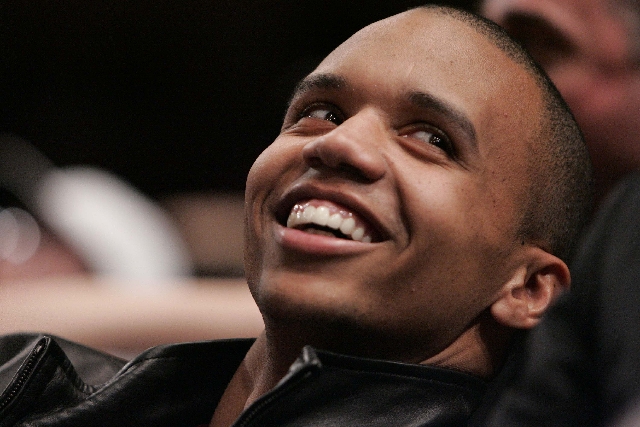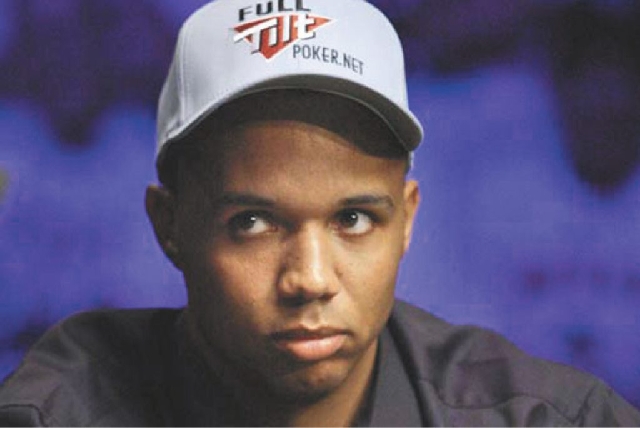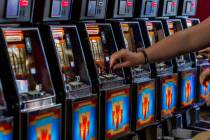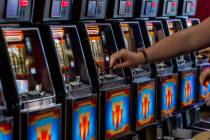London casino accuses poker star Phil Ivey of cheating at baccarat
LONDON — Casino giant Genting Group is accusing poker champion Phil Ivey of amassing millions of dollars in winnings by cheating at a version of baccarat.
Court papers filed in Britain’s High Court by the Malaysia-based casino operator say that Ivey and an accomplice successfully used a scam to rack up winnings of roughly 7.8 million pounds ($11.9 million) last summer.
The case has rocked the world of professional poker by pitting one of its most charismatic young stars against a major resort and casino operator. The game in question took place on Aug. 20-21 at Crockfords, one of London’s oldest and most respected casinos.
The long-simmering dispute was first made public last month when Ivey filed a claim against the Genting Group in London’s High Court. His lawyers said the casino refused to pay Ivey the money he had won playing baccarat at Crockfords, which is owned by Genting.
The casino responded in court Tuesday by accusing Ivey of cheating, saying his winnings were invalid because they were “based upon illegal acts.”
In March, Genting announced plans to build the $2 billion to $7 billion Resorts World Las Vegas on the Strip location that currently houses the unfinished Echelon project.
Genting also owns the Resorts World Sentosa in Singapore and Resorts World New York, a casino attached to the Aqueduct Race Track.
Ivey, 37, who owns a home in Las Vegas, earned his ninth World Series of Poker individual event championship bracelet in Australia in April at the tournament’s Asia Pacific competition.
He is tied for fourth with the late Johnny Moss for most career World Series of Poker bracelets. He has earned more than $6 million at World Series of Poker events and is estimated to have won more than $14 million in his career at tournament poker.
Ivey, who was connected to the Full Tilt Poker website, stayed away from the World Series of Poker in 2011 following the “Black Friday” federal crackdown on Internet poker. He returned to the tournament last year, reaching five final tables in individual events.
He now operates a website, IveyPoker.com, that offers various poker products and training opportunities from professional poker players.
Ivey normally shuns contacts with the media, but on Wednesday he issued a statement through his lawyers denying any misconduct.
“The fact that I have issued a lawsuit in the face of what they are alleging says everything about how comfortable I am with my conduct and the validity of my win,” he said. “Any allegations of wrongdoing by Crockfords are denied by me in the very strongest of terms.”
Ivey has attracted a large fan base and been active with several charities.
The casino group said in the court papers that Ivey’s “illegal acts” void his claimed winnings. It said he was able to have a “significant advantage” over the casino by using improper means to determine whether the first card being dealt in the baccarat hands would be a powerful or weak card, allowing him to place his bets accordingly.
The court papers say Punto Banco Baccarat is played with six or eight decks of cards placed in a dealing “shoe.” The goal in each hand, which consists of two or three cards, is to get closest to nine — the best first cards are a 7, 8 or 9 since a 10 or a picture card counts as zero.
Players can bet that they will win, that the bank will win, or that the hand will be a tie.
The court papers say that Ivey and his accomplice, after some trial and error, found a “shoe” that contained decks of cards with an asymmetrical design. They were then able to convince the dealer, after cards were revealed, to turn the card either sideways or end over end. The staff was not suspicious because the accomplice, who spoke Cantonese with the dealers, acted like she was superstitious and just changing the way the cards lay for good luck, court papers say.
The effect was that the dealer inadvertently sorted the cards so that 7, 8 and 9 cards were distinguishable from others. Ivey sustained his success, the court papers claimed, by asking that the cards be shuffled automatically by a machine, which meant the way the cards were arranged was not altered as the game progressed.
The court papers also claim that Ivey specifically asked for an Asian dealer so his accomplice could communicate with that dealer in a language not known by the rest of the casino staff.
The Associated Press and Review-Journal writer Howard Stutz contributed to this report.
Related story
Poker standout Ivey sues London casino over nonpayment of gambling winnings























